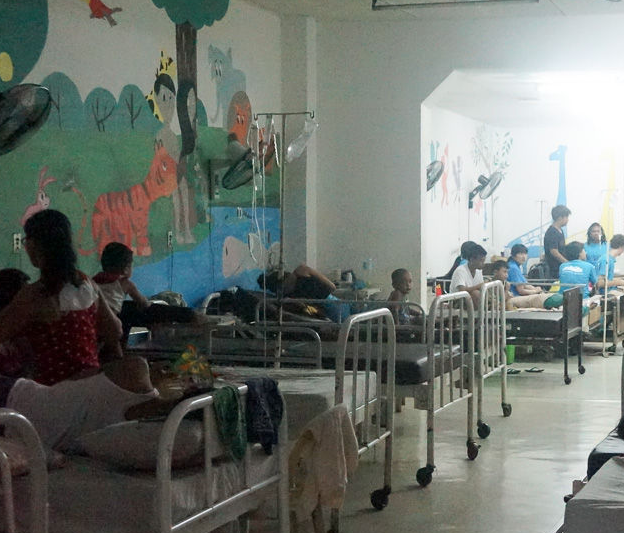
Research group IBON said that government must allot a higher budget for public health services rather than fund private health providers through the Universal Health Care (UHC) Act.
Also known as Republic Act (RA) 11223, the UHC Act ostensibly aims to provide all Filipinos with promotive, preventive, curative, rehabilitative, and palliative health services “without causing financial hardship”, and prioritizes Filipinos who cannot afford such services.
The UHC would need Php257 billion in its first year of implementation. The sin tax reform law on the other hand is allegedly intended to augment the funding gap of around Php62 billion in the first year alone.
But IBON observed that the UHC would use government funds to create supplementary coverage by private health care providers such as private health insurance and Health Maintenance Organizations (HMOs) as well as provide network-based licensing, contracting, and accreditation of health facilities. This further privatizes health services, the group said.
The UHC, IBON explained, stipulates that Filipinos would automatically be enrolled in PhilHealth or the National Health Insurance Program (NHIP) either as a direct contributor who would pay premiums or as an indirect contributor. Moreover, the NHIP would have an increase in membership rate by 0.5% annually to fund the UHC.
The group observed that this is not as socialized as it appears to be, as high-income individuals would contribute the same percentage of their salary as low-income earners.
Also, IBON noted, to ensure that basic accommodation services are met, UHC states that government hospitals would operate not less than 90% of their bed capacity as basic accommodation, not less than 70% for specialty hospitals, and not less than 10% for private hospitals.
However, IBON observed that hospital beds in the country are not enough to begin with. The World Health Organization (WHO) recommends 20 beds per 10,000 population. The Philippines has never reached the recommended ratio, the group said, and this indicator even worsened from 14.4 beds per 10,000 population in 1990 to only 9.9 beds per population in 2014. The number of government hospitals even fell from 732 in 2011 to 423 in 2015.
Moreover, said IBON, the UHC assures that a National Health Human Resource Master Plan would be formulated to ensure the provision of health programs and services through a guaranteed permanent employment and competitive salary of all health professionals and health care workers. Yet for every 10,000 population the country had only 0.3 government physician and 0.6 public health nurse in 2017.
Despite the scarcity of government health workers, data from the Philippine Overseas Employment Administration (POEA) show that the country has been exporting nurses for decades, which is worsening the brain drain of the health sector, observed IBON. The Philippines deployed 19,551 nurses in 2016 or 53 nurses per day.
IBON emphasized that the UHC is the continuation of the privatization and commercialization of health services of previous administrations, from the Health Sector Reform Agenda of the Estrada administration, Fourmula One for Health of the Arroyo administration, and Aquino’s own UHC agenda. These programs advance less government and more private role in healthcare, making provision of health services less direct and more insurance-driven thus prioritizing private profits over public health, said IBON